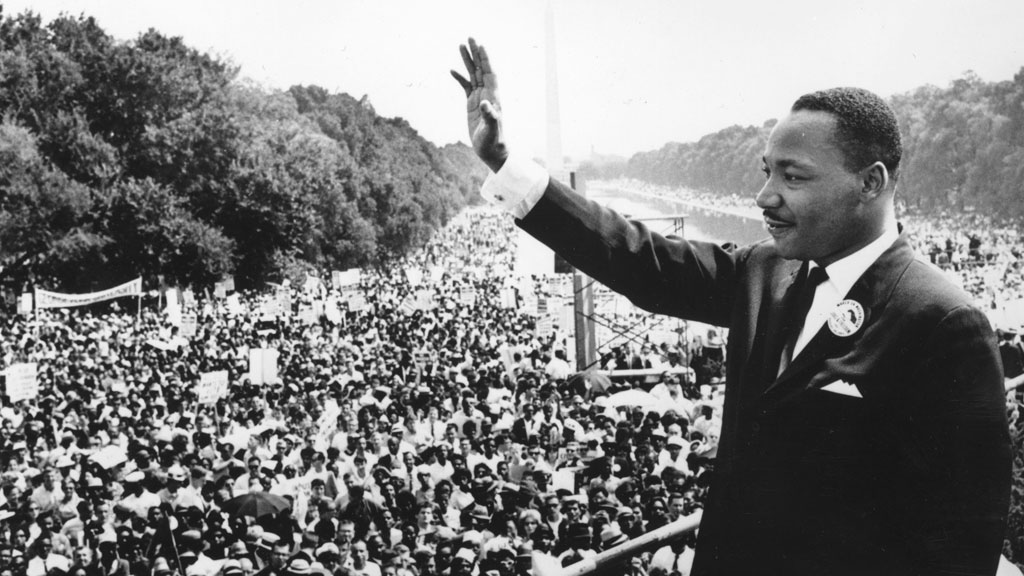Martin Luther King’s ‘dream’ speech remembered
The life of US civil rights leader Martin Luther King Jr is due to be honoured with a march in Washington and a bell ringing service in London.

The events have been organised to mark the 50th anniversary of King’s seminal “I have a dream” speech in the US capital in 1963.
The speech, in front of 250,000 civil rights marchers, was a passionate denunciation of discrimination against black people in America and helped to put the issue of race relations centre stage, just months after protesters in Alabama were set upon with police dogs and fire hoses.
It was not the first time Martin Luther King had spoken about having a “dream” for his children and his country, but his words had never caught on and were not included in the written version of the speech he gave 50 years ago.
According to Clarence Jones, his lawyer and speech writer, King decided to improvise while he was on his feet, telling his audience that he had a dream “that my four little children will one day live in a nation where they will be judged not by the colour of their skin, but by the content of their character”.
The Baptist preacher had been encouraged to deviate from his text by gospel singer Mahalia Jackson, who yelled: “Tell ’em about the dream, Martin. Tell ’em about the dream!”
He did so, giving America and the world some of the most memorable and uplifting lines that have ever been spoken about racial discrimination and segregation.
‘Sons of slaves’
“I have a dream that one day on the red hills of Georgia, sons of slaves and the sons of former slave owners will be able to sit down together at the table of brotherhood,” King said.
“I have a dream that one day even the state of Mississippi, a state sweltering with the heat of injustice, sweltering with the heat of oppression, will be transformed into an oasis of freedom and justice.”
King’s rhetoric was inspired by the experience of black Americans, whose ancestors had arrived in the country as slaves.
He drew attention to the fact that 100 years after emancipation, African Americans were still waiting for equality, but there was no bitterness and no thought of revenge.
“Let us not seek to satisfy our thirst for freedom by drinking from the cup of bitterness and hatred,” he said. “We must not allow our creative protest to degenerate into physical violence.
‘New militancy’
“The marvellous new militancy which has engulfed the negro community must not lead us to a distrust of all white people, for many of our white brothers, as evidenced by their presence here today, have come to realise that their destiny is tied up with our destiny. “
King, who was assassinated in 1968, uttered his words at the foot of the Lincoln Memorial, where President Barack Obama will speak on Wednesday following a march in Washington.
In London, as part of an international programme of activities, 50 young people from across Britain will come together in Trafalgar Square to ring bells at 3pm, the time that the civil rights leader finished his speech.
London Mayor Boris Johnson said: “Martin Luther King’s speech is recognised as one of the great pieces of oratory. It resonates around the world half a century after it was given and continues to inspire people of all ages.”
-
Latest news
-
Diane Abbott row overshadows Labour’s health policy4m

-
Jury deliberating in Trump hush-money case3m

-
Social housing shortage: ‘When I’m 65, if I’m still renting, I can’t retire.’3m

-
What happened when this hotel used to house asylum seekers closed down6m

-
Have governments in England, Wales or Scotland met their house building targets?2m

-




